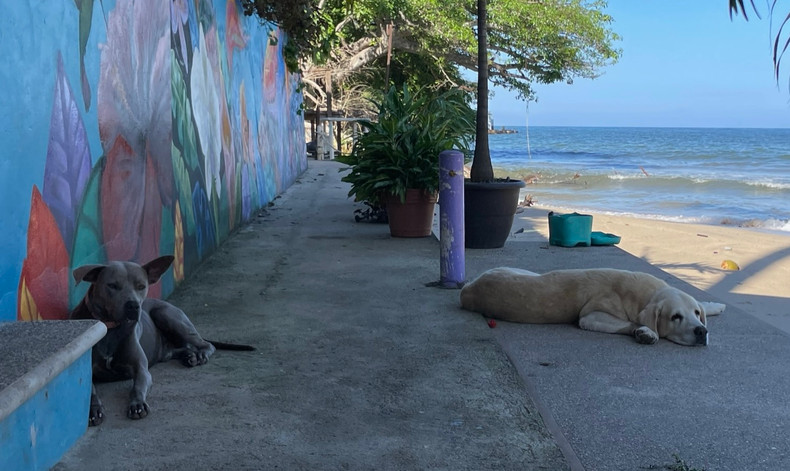Anal glands are small scent glands located just inside the anus at approximately the 5:00 and 7:00 positions. They are part of the digestive system and are naturally emptied during normal bowel movements.
Common Problems
The main issues that affect anal glands are impaction and excessive drainage (leakage).
Common causes include:
- Stool that is too soft or thin
- Lack of exercise
- Insufficient fiber in the diet
- Chronic digestive problems or diarrhea
- Obesity, which weakens the muscles supporting anal gland drainage
- Chronic skin or allergy issues affecting the anal area
When inflammation is present, the glands may either leak excessively or become obstructed, leading to discomfort, scooting, or infection.
Natural Support for Anal Gland Impaction
If your pet’s anal glands are impacted, you can help support healing with a gentle, natural approach:
- Warm Herbal Compress:
Apply a warm compress for 10–15 minutes over the anal area using a blend of nettles, Oregon grape root, and chamomile flowers. Repeat 2–3 times daily as needed.
- Gentle Expression:
After the compress, apply light pressure on both sides of the anus and move your fingers gently toward the center in a “milking” motion. Use very gentle pressure and only as a temporary measure—anal glands should ideally empty naturally on their own.
- Astringent Care:
After the compress, apply a small amount of alcohol-free witch hazel to help tone and tighten the skin around the glands.
- Exercise:
Follow the treatment with a walk or light exercise to encourage natural gland function and circulation and expression.
Natural Support for Anal Gland Leakage
For pets experiencing leakage, use a herbal compress containing yarrow or horse chestnut, with a few drops of colloidal silver and goldenseal. Apply several times daily for 10–15 minutes.
When the Area Is Inflamed or Painful
If the skin around the anal glands appears red, irritated, or swollen, consider applying a combination of natural creams:
- Tepezcohuite cream (“The Skin Tree”) – promotes skin regeneration and healing
- Chaca (Palo Mulato) – provides anti-inflammatory support
- Thymus vulgaris (thyme) cream – offers natural antimicrobial benefits
Homeopathic Support
Homeopathy can be used alongside other treatments to support healing and comfort.
- For anal gland abscesses:
- Belladonna 6C: 2–3 times daily for 5–7 days
- Arnica 30C: 3–4 times daily for pain
- If healing is slow, add Silicea 30C: 1 pellet every 2 weeks for 1–2 months
- For impacted glands:
- Sulphur 30C: give a single dose. If there is no improvement within 24 hours, seek other treatment options.
Important:
Give homeopathic remedies without food—at least 30 minutes before or after meals—and avoid touching the pellets directly with your hands.
Tips to Keep Anal Glands Healthy
- Support digestive health: Add psyllium husk and/or acidophilus to the diet, and provide a balanced, high-fiber food.
- Ensure regular exercise: Helps maintain muscle tone around the glands and supports natural expression.
- Prevent obesity: Extra weight weakens muscle tone and affects gland function.
- Address chronic skin and digestive issues: These often contribute to recurring anal gland problems.
- Avoid unnecessary manual expression: If your pet’s glands are functioning normally, do not have them expressed routinely by a groomer or technician.
- Remember: “If it isn’t broken, don’t fix it.”

